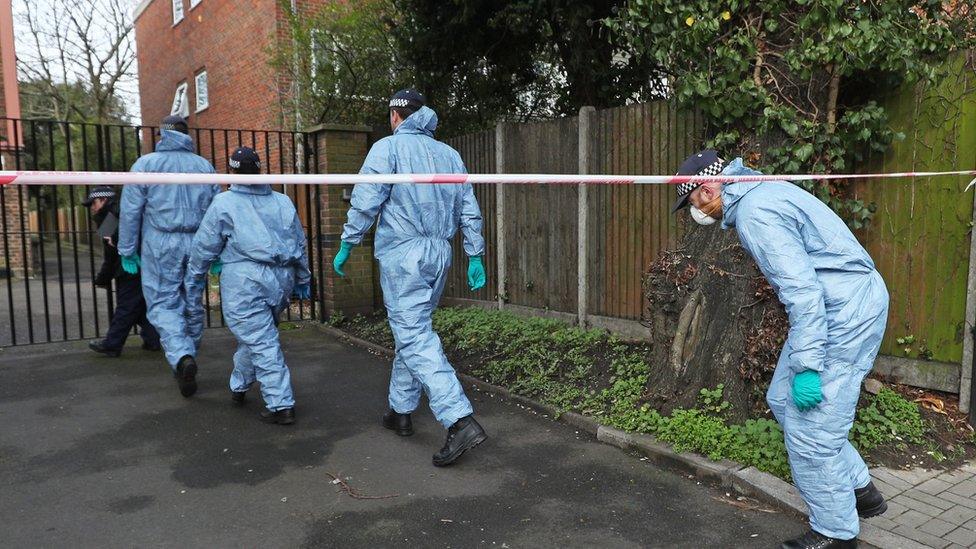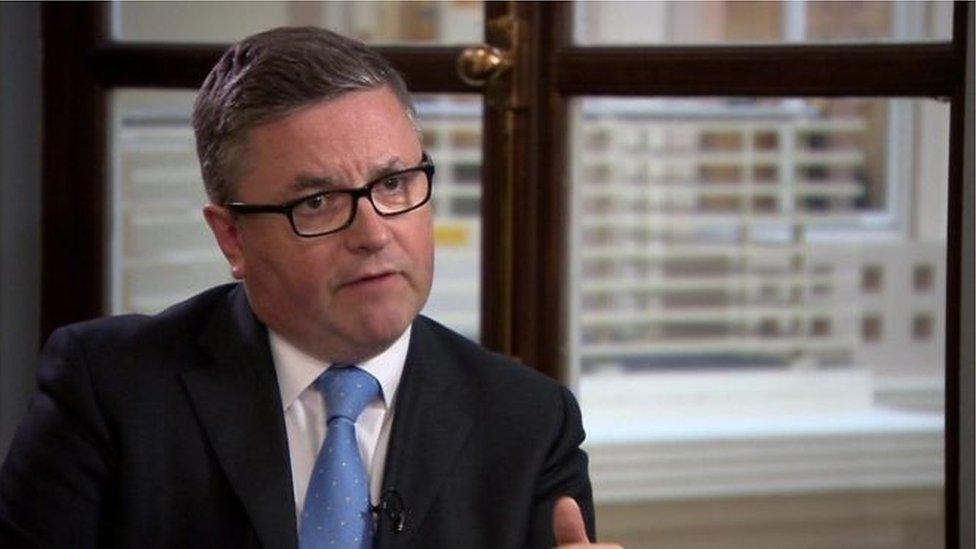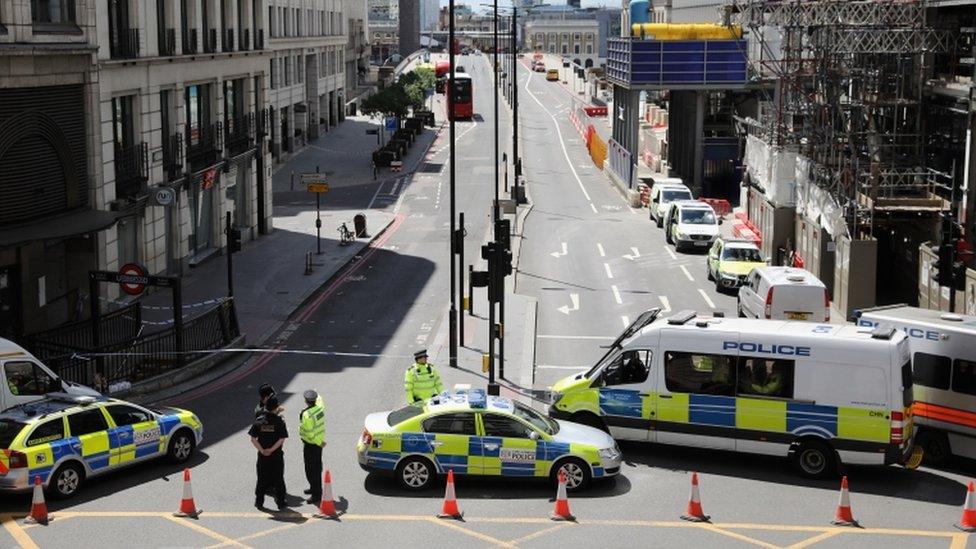Terror sentence changes 'must extend to Northern Ireland'
- Published

Police carrying out searches linked to the attack in Streatham
There have been calls for new legislation ending the early release of people convicted of terror offences to be extended to Northern Ireland.
MPs are debating the Terrorist Offenders Bill at Westminster.
It means terror offenders will only be considered for release once they have served two-thirds of their term and with the approval of the Parole Board.
It was introduced in response to an Islamist-related terrorist incident in London last month.
The attacker, Sudesh Amman, had been freed from prison 10 days earlier.
At present, offenders who receive standard determinate sentences for terror convictions are released automatically after serving half their sentence.
The new legislation is being fast-tracked through the House of Commons.
The aim is to prevent the 28 February release of Mohammed Zahir Khan, who is the next convicted terrorist due to be freed after serving half his sentence for encouraging terrorism.
Justice Minister Naomi Long said while the decision on whether or not to extend the legislation lay with the secretary of state, Stormont officials would "engage on the implications for Northern Ireland".
"I am fully committed to ensuring the risk posed by terrorist-related offenders is regularly assessed and appropriate measures are deployed to protect the public in Northern Ireland from the risk of harm these individuals pose," she added.
'Not immune'
Ulster Unionist MLA Doug Beattie said he could not accept the idea that the legislation would not apply in Northern Ireland.
"This part of the United Kingdom is not immune to global terrorist attack; in fact, we may find ourselves, being the frontier to the European Union, as the soft underbelly of the United Kingdom," he said.
"The same penalties should be available UK-wide for those who seek to attack our people and our way of life, in any part of our country."

Justice Secretary Robert Buckland said the government will introduce a wider counter-terrorism bill which will cover Northern Ireland
The government believes the changes will not fall foul of the UK's obligations under the European Convention of Human Rights, which outlaws signatory nations imposing longer sentences than those "applicable at the time the criminal offence was committed".
However, Justice Secretary Robert Buckland told MPs the government had not chosen to extend the legislation to Northern Ireland "because the way in which sentences are calculated and put together by the NI courts" were different than courts in England and Wales.
He said the government will introduce a wider counter-terrorism bill to cover all parts of the UK that would allow this issue to be debated further.
"It is real evidence the British government has not sought to take a blanket approach to the various jurisdictions of the UK," he added.
However, DUP MP Gavin Robinson expressed doubt about what Mr Buckland had said regarding sentencing for terror offences in NI.
Mr Robinson said his party would back the new emergency legislation, but pointed out that the government's 2011 counter-extremism strategy, Prevent, was also not extended to Northern Ireland.
"It does jar when we lend our support to counter-terrorism measures in this place that we are not incorporated in it."

What is the Terrorist Offenders Bill?
At the beginning of the month, two people were stabbed in an attack on Streatham High Street in London, in an Islamist-related terrorist incident.
The attacker, Sudesh Amman, had been freed from prison 10 days earlier, after serving time for terror offences.
The government responded by promising to bring forward legislation urgently to prevent the automatic release of people convicted of terrorism offences halfway through their sentences.
Under the government's proposals, people given a fixed or determinate sentence for a terror-related offence would be freed only with the agreement of the Parole Board - and after serving at least two-thirds of their term.
The bill was introduced to Parliament on Monday and the government wants the measures to become law by the end of the month.
The aim is to prevent the 28 February release of Mohammed Zahir Khan, who is the next convicted terrorist due to be freed after serving half his sentence for encouraging terrorism.
The bill would affect about 50 prisoners who were convicted under existing rules, which allow for release halfway through a sentence.

- Published4 June 2017

- Published11 February 2020
